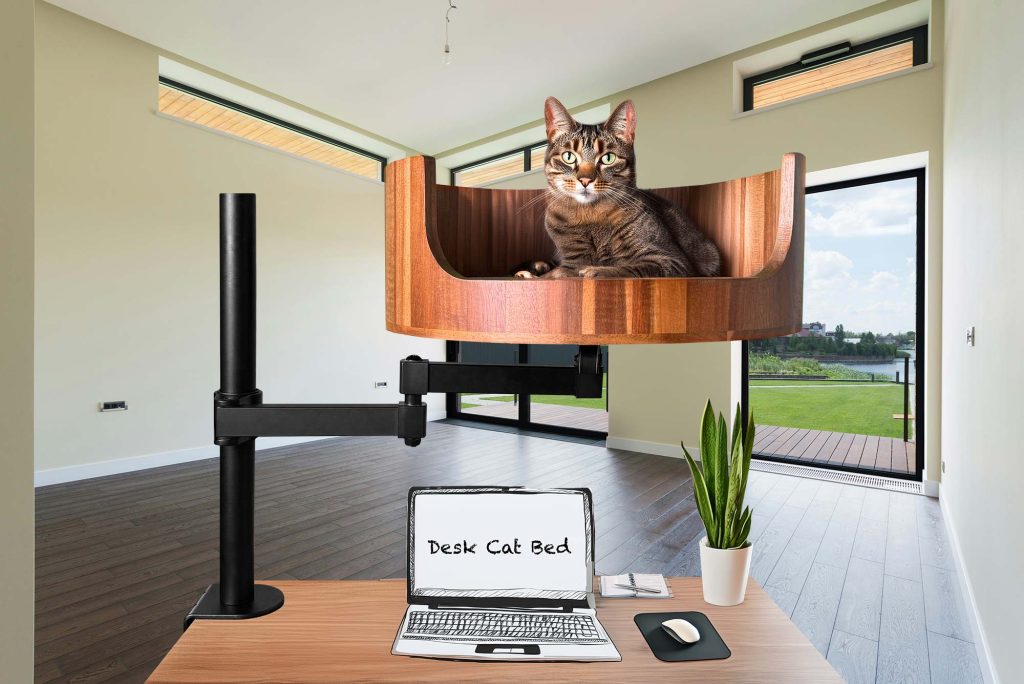Cats are notorious for their quirky behaviors, from knocking items off shelves to randomly sprinting around the house at 3 AM. Another puzzling behavior that many cat owners encounter is their feline’s tendency to munch on grass. This behavior, often confusing and concerning to pet parents, raises the question: why is my cat eating grass?
In this article, we will delve into the reasons behind why cats engage in this behavior, exploring both the instinctual and medical explanations. While some may dismiss a cat’s grass-eating habits as a simple preference for greens, there is actually a deeper biological reason behind this behavior that dates back to their wild ancestors. Additionally, we will discuss the potential health benefits and risks associated with cats consuming grass, and what steps pet owners can take to ensure their furry friends are safe when indulging in this behavior. By gaining a better understanding of why cats eat grass, pet parents can be better equipped to care for their feline companions and promote their overall well-being.
1. Cats eat grass to aid in digestion and help eliminate hairballs.
2. Grass eating can be a natural behavior for both indoor and outdoor cats.
3. Some cats may eat grass to add fiber to their diet or as a response to feeling unwell.
4. Providing safe grass alternatives for indoor cats can satisfy their natural urge to chew.
5. Monitoring your cat’s grass-eating habits can provide insight into their overall health and well-being.
## Reasons cats eat grass
Cats are natural hunters and may have an instinct to eat grass as a way to aid their digestion. Grass contains essential nutrients and fiber that can help cats with gastrointestinal issues. Some experts believe that cats eat grass to help induce vomiting and eliminate hairballs. Additionally, eating grass may simply be a way for cats to satisfy their natural urge to chew and forage.
## Benefits of grass-eating for cats
Despite the common misconception that grass is harmful to cats, it can actually be beneficial for their health. Grass can help aid digestion and regulate bowel movements. It can also provide cats with additional nutrients that they may not get from their regular diet. Additionally, chewing on grass can help keep a cat’s teeth clean and healthy.
## When is grass-eating a cause for concern?
While grass-eating is a natural behavior for cats, excessive or frequent consumption of grass may indicate an underlying health issue. If a cat is constantly vomiting after eating grass, it may be a sign of a more serious problem such as an intestinal blockage or gastrointestinal disease. It is important to monitor your cat’s grass-eating habits and consult with a veterinarian if you notice any concerning symptoms.
## How to prevent excessive grass-eating
If you are concerned about your cat’s grass-eating habits, there are a few steps you can take to help prevent excessive consumption. Provide your cat with a variety of cat-safe plants or grasses that they can nibble on instead of potentially harmful outdoor grass. You can also consider introducing more fiber into your cat’s diet to help satisfy their urge to chew on grass. Additionally, regularly grooming your cat to prevent hairballs can also help reduce their need to eat grass for digestive purposes.
Desk Cat Nest FAQ
Why is my cat eating grass?
It is normal for cats to eat grass as it can help aid digestion and assist in the elimination of hairballs. However, if your cat is consistently eating large amounts of grass or showing signs of distress after consuming it, it may be best to consult with a veterinarian to rule out any underlying health issues.
Will the Desk Cat Nest prevent my cat from eating grass?
The Desk Cat Nest provides a cozy and comfortable space for your cat to relax in, but it may not necessarily prevent them from eating grass. If your cat has a strong inclination towards eating grass, it may continue to do so regardless of the new nesting spot. It is still a great addition to your home for your cat’s comfort and enjoyment.
Can the Desk Cat Nest be used outdoors?
While the Desk Cat Nest is primarily designed for indoor use, it can also be placed in a protected outdoor area such as a screened porch or balcony. Just make sure to monitor your cat while they are outside to ensure their safety.
How do I clean the Desk Cat Nest?
The Desk Cat Nest can be cleaned by gently removing any loose fur or debris with a soft brush or vacuum attachment. For deeper cleaning, you can spot clean with a mild detergent and water, and allow it to air dry completely before placing your cat back inside.
In conclusion, providing your cat with a Desk Cat Bed can help address the issue of why is my cat eating grass. The elevated design of the bed allows your cat to enjoy a comfortable relaxation spot indoors, reducing the temptation to graze on outdoor grass. Additionally, the soft and cozy material of the bed provides a sense of security and comfort for your feline friend, further discouraging the habit of consuming grass. By investing in a Desk Cat Bed, you are not only providing a safe and comfortable space for your cat, but also addressing their natural instincts in a healthier way.


